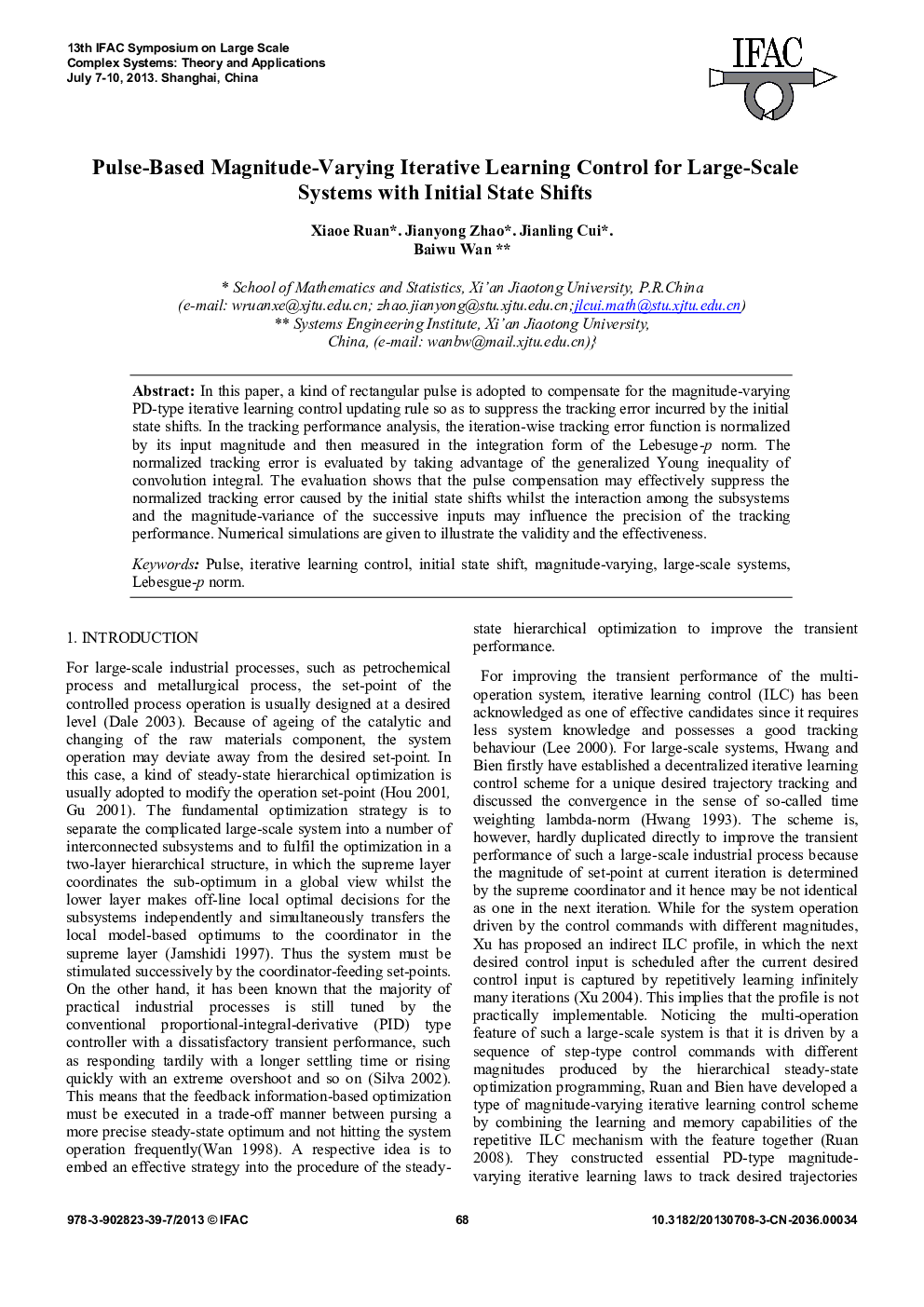| Article ID | Journal | Published Year | Pages | File Type |
|---|---|---|---|---|
| 712653 | IFAC Proceedings Volumes | 2013 | 6 Pages |
In this paper, a kind of rectangular pulse is adopted to compensate for the magnitude-varying PD-type iterative learning control updating rule so as to suppress the tracking error incurred by the initial state shifts. In the tracking performance analysis, the iteration-wise tracking error function is normalized by its input magnitude and then measured in the integration form of the Lebesuge-p norm. The normalized tracking error is evaluated by taking advantage of the generalized Young inequality of convolution integral. The evaluation shows that the pulse compensation may effectively suppress the normalized tracking error caused by the initial state shifts whilst the interaction among the subsystems and the magnitude-variance of the successive inputs may influence the precision of the tracking performance. Numerical simulations are given to illustrate the validity and the effectiveness.
